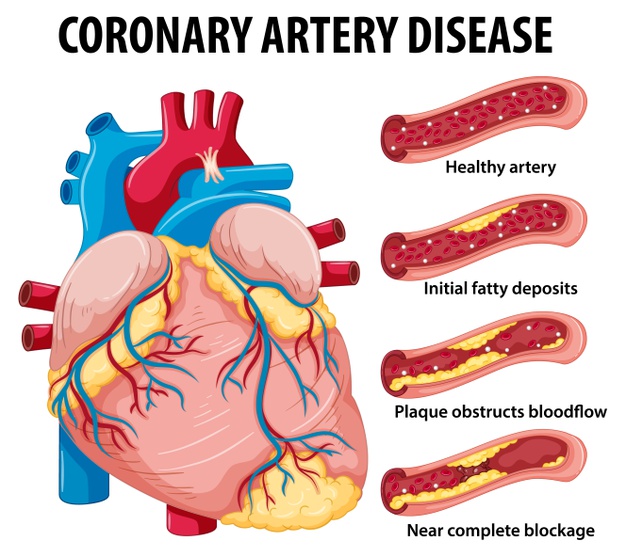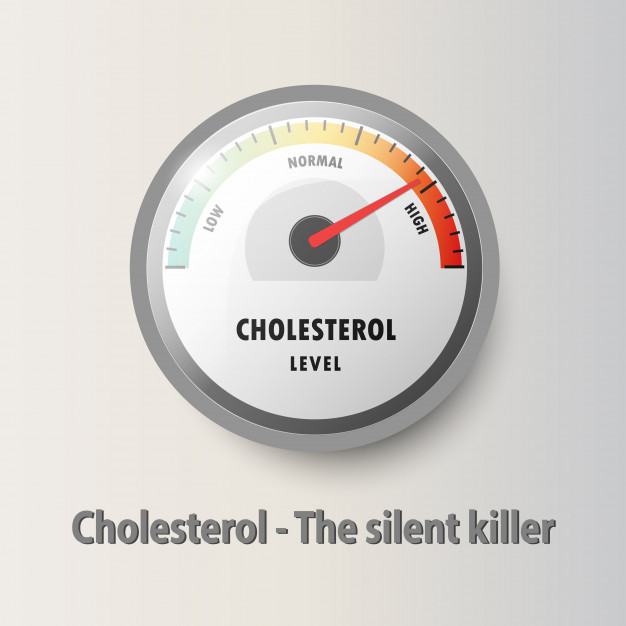Hypercholesterolemia, consequences of elevated blood cholesterol level, LDL and HDL ratio, ways of decreasing blood cholesterol level
Description : Cholesterol is a type of fat primarily required by the body for synthesizing cell membrane. Humans
Article Details :
Cholesterol is a type of fat primarily required by the body for synthesizing cell membrane. Humans generally fulfill their need of cholesterol through diet, whereas, cholesterol can also be synthesized by liver. Cholesterol plays various important roles in body like it is required for synthesizing sex hormones or steroid hormones and Vitamin D. It also helps to maintain the fluidity of cell membrane and the most important thing is that cholesterol is essentially required for the synthesis of bile, which is needed for fat digestion
Thus cholesterol is considered as an imperative organic substance of body, needed for various purposes but it should be kept in mind that the level of cholesterol should be maintained in normal range because high level of cholesterol is severely detrimental for health
It has seen that increased cholesterol level is associated with enhancing the risk of cardio vascular diseases like atherosclerosis, coronary artery disease, angina pectoris, hypertension, myocardial infarction, strokes and heart attacks.

Hypercholesterolemia also affects the liver adversely. It increases the risk of developing fatty liver disease and gall stones. It increases the prevalence of obesity as well and it may also affect the renal system. Thus individual with hypercholesterolemia should focused on maintaining their cholesterol level at check for obtaining a good health status
Basically there are two types of cholesterol found, which include good cholesterol or HDL (high density lipoprotein) and bad cholesterol or LDL (low density lipoprotein). Elevated level of LDL is responsible for increasing the prevalence of above stated diseases. On the other hand HDL helps to absorb LDL and transports it back to liver. Liver then flushes it out from the body hence it is better to maintain a healthy ratio of HDL and LDL in body for lessening the harmful consequences of hypercholesterolemia
Below points will discuss about some basic dietary remedies, which ultimately help an individual to reduce his or her cholesterol level more effectively and also help an individual to obtain a healthy HDL-LDL ratio
Focus on healthy fat consumption
- Diet should be rich in polyunsaturated fatty acids (PUFA) and monounsaturated fatty acids (MUFA) and consumption of saturated fatty acids and trans fat should be restricted
- Unsaturated fatty acids play significant role in reducing the concentration of LDL, VLDL as well as triglyceride thus its consumption significantly decreases total fat percentage of body
- Unsaturated fatty acids also help to improve the ratio of HDL and LDL in body whereas saturated fat and trans fat are accountable for increasing the concentration of LDL in many folds thus their consumption exert various harmful effects on health
- Vegetables oil such as olive oil, rice bran oil, sesame oil, soybean oil, corn oil, sunflower oil etc are rich in unsaturated fatty acids thus they can be included in the diet as cooking oil
- Foods, which are rich in both PUFA and MUFA include avocado, almond, Brazil nut, peanut, walnut, fishes like tuna, salmon, trout etc should also be included in the diet
- Whereas hydrogenated vegetable oils, margarine, processed or packaged foods, pork, red meat should be excluded from the diet because they contain high amount of saturated fats and trans fats
- Consumption of dairy products like cheese or butter should also be restricted as bacteria present in the stomach of cow or goat or sheep may produce natural trans fat thus dairy products may also contain modest amount of trans fat
Try garlic
- Consumption of garlic or its extract is extremely beneficial for lowering cholesterol level
- It plays vital role in decreasing total cholesterol as well as LDL level
- It has estimated that regular consumption of half to one garlic clove can reduce cholesterol by about 10%
Abundant consumption of fibre
- Diet should contain enough fibre especially soluble fibre for reducing blood cholesterol concentration
- Soluble fibre binds with cholesterol and prevents its absorption through intestinal epithelial cells as a result fibre inhibits cholesterol from entering into the blood stream that ultimately decreases the concentration of cholesterol in blood
- Whole grain cereals, green leafy vegetables, fruits, legumes, beans are considered as good source of soluble fibre thus they should be included in the diet
Have flaxseed
- Flaxseed contains various imperative nutrients that play significant role in decreasing blood cholesterol level
- It contains fibre, plant based omega 3 fatty acid and lignans, all of which help in lessening total cholesterol concentration and LDL concentration
- It is also very effective for preventing the deposition of cholesterol within artery hence reduces the risk of developing cardio vascular diseases as well
- Oil extracted from flaxseed generally termed as flax seed oil can also be utilized for cholesterol lowering purpose as it contains significant amount of alpha-linolenic acid, which is an omega 3 fatty acid that plays imperative role in decreasing the concentration of LDL whereas increases HDL concentration, which ultimately provide a positive impact on cardiac health
- Flaxseed can be Read more



